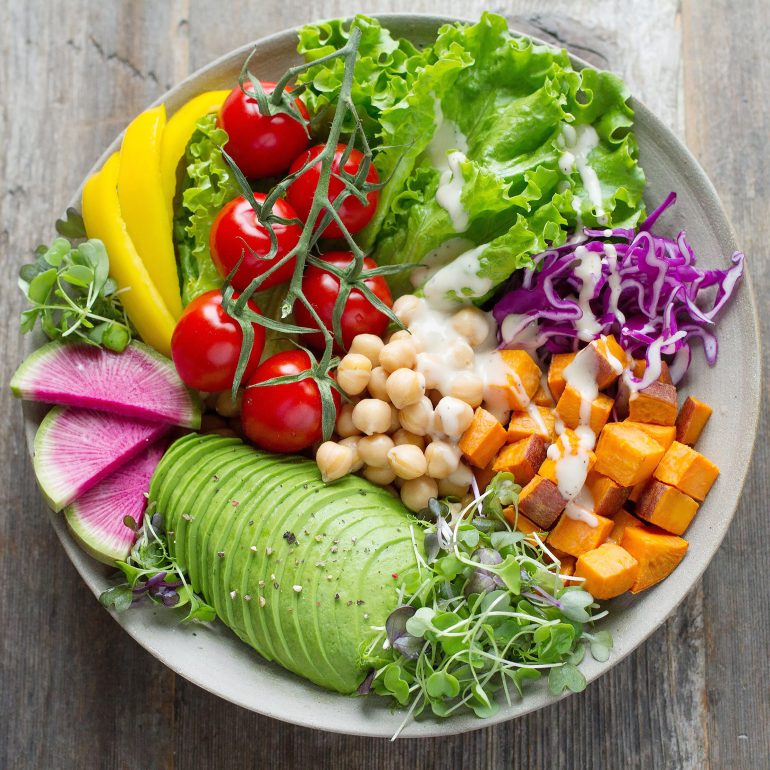By Pooja Valeja
How often do we look into the mirror and make faces? While taking a selfie, we inhale deeply and tuck our tummy to look fit. We use Photoshop filters before posting our images. Go on a crash diet a week before our best friend’s wedding. Switching to pills and fat burners at the cost of possible side effects. All these are in the name of making us look good and fabulous!
With most of us being so taken aback by social media and wanting to look perfect at all times, we have given importance to looks and beauty over health and immunity. Ensuring that every aspect of our social media handle looks just perfect, we are on a continuous run to put out our best. Even if that costs us to make tweaks in our lifestyle. True Happiness lies in appreciating what you already have. Your health is your true wealth, and if you are healthy and fit, you have done it all, especially during difficult times of an epidemic like the one we had with COVID-19. Only your strength to fight and your balanced lifestyle could keep you going. Good health combines being physically fit without any ailments and mentally at peace to take on life’s challenges in good stride.
While dieting is not wrong, it is crucial to comprehend our bodies and analyze the kind of diet we should opt for. Often, we choose a generalized diet but follow nutritional patterns as per our height, weight, and age. Visiting our physician or a nutritionist is always good to advise us correctly. Every person’s body is different and has a different set of requirements. Having high cholesterol and opting for Keto could prove dangerous since the routine demands a high protein intake, and some products are very high in cholesterol. Having a deficiency that one is unaware of and going ahead with a crash or a GM diet is not advisable. Consulting a nutritionist or a dietician is crucial before enrolling in a program.

Feeling healthy and being healthy is of utmost importance in any nutritional program. While one could go for any, one should ensure that one is fit enough to sustain a food type for an extended period. Also, a diet is more temporary. Opting for a healthy lifestyle ensures one does not have to crave or starve but consume in proportion. Also, changing your lifestyle brings several changes in one’s routine patterns.
Sleeping patterns, exercise routines, eating habits, and work timings get more organized and timelier, leaving enough energy for each activity. Honoring your health over dieting is showcasing respect for your body and yourself. At most times, in the race to look better or competing with your biological age and trying to look younger, one tends to give up on health at the cost of external beauty.
Using more accessible options like fat burners, drugs, and steroids and their consumption could lead to side effects. While sometimes your doctors may recommend these depending upon your health conditions, having these only under medical conditions is recommended. Each one of us has a different mechanism. Our metabolic rates, digestion capacities, absorption levels, and ability to respond to exercise and diets vary. Determining your complexes is the key to good health that could fight viruses, bacteria, and the illness it could cause.
Above all, it is vital to honor our body. It’s the only vessel we sail in. Love and respect every aspect of it. Feed it with positive affirmations. We do not need others to reassure us of how we look or come across. Having the perfect figure with low resistance to diseases or having chronic issues with the perfect physique has no point or relevance. One has to be calm in his space and have acceptance. Good health is not a virtue. It demands persistent discipline, consistent efforts, and timely interventions. One of the most important aspects of good health and fitness is time. Do not give up if you do not see results in a week. Allow your body enough time to reciprocate what you say and feed it.
Tips to keep our immunity boosted and keep us healthy:
- Make exercise a crucial part of our routine. A simple brisk walk for 30 minutes daily should be a good start. Follow it up with some stretches to keep our body flexible and avoid cramping.
- Consumption of veggies and fruits. The fiber and nutrition of fruits help in cutting down calories. Also, veggies and fruits bring down our acidic levels.
- Choose Green Tea/ Herbal Tea over caffeine. Though caffeine is good sometimes, regular intake may hamper organs in the long run.
- Drink loads of water. Consumption of 3-4 liters daily keeps our muscles flexible to avoid spasms.
- Sleep for 7-8 hours. It helps digestion, heals our body, repairs cells, and rejuvenates us.
- Don’t ever starve. Fasting should be done only after consulting a nutritionist or a dietician.
- Meditate/listen to calming music once a day.
- We must follow a hobby that engages our mind and gives us a fulfilling feeling: cooking, reading, knitting, gardening, or anything we are fond of. Try to minimize stress.
- Regular health checks alarm us about any nutritional habits that we must follow or avoid.



